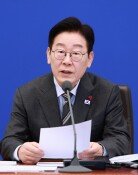Negotiation with Terrorists Will Only Lead to Further Acts of Terrorism
Negotiation with Terrorists Will Only Lead to Further Acts of Terrorism
Posted September. 01, 2007 08:04,
As all the Korean hostages taken by the Taliban in Afghanistan were released, the international community has raised criticism regarding the way the latest abduction case was resolved.
Most are pointing out that by negotiating face-to-face with a terrorist group, the Korean government helped to raise the status of the Taliban, causing concerns over more terrorist acts and abductions in the future. On the other hand, some are saying that negotiations with the Taliban was an unavoidable choice to save the life of the hostages.
The first criticism is coming from Canada, which has a 2,300-strong military mission in Afghanistan. Targeting Korea, Canadian Foreign Minister Maxime Bernier said in a statement released August 30, We do not negotiate with terrorists, for any reason. Such negotiations, even if unsuccessful, only lead to further acts of terrorism.
The move by the Korean government also came under fire in Germany. A German taken hostage by the Taliban is still remaining in captivity in Afghanistan. The Green Party`s spokesman for defense issues, Winfried Nachtwei, said, I am pleased the hostages have been freed, but on a political level, it is nothing less than a political triumph for the Taliban. In addition, Germany`s Der Tagesspiegel Daily wrote, The concessions made by the Korean government makes other countries ongoing efforts to release their hostages much more difficult.
Senior analyst Josh Devon of the Search for International Terrorist Entities (SITE) Institute said, Although Korea had success in releasing hostages, it paid a high price of lifting the name of the Taliban while also undermining Afghan government status.
Afghan Commerce Minister Amin Farhang also criticized the South Korean government in an interview with the British Times, saying, We fear that this decision could become a precedent. The Taliban will continue trying to take hostages to attain their goals.
The U.S. State Department said that it did not play any role in the negotiation process and emphasized that there was no change in its guidelines of not conceding to terrorist groups. U.S. Department of State Deputy Spokesman Tom Casey said on August 30 during a daily press briefing, I`d simply reiterate that the longstanding U.S. policy, as I`ve said over the past few days and as everyone else has, is not to make concessions to terrorists.
Meanwhile, Japanese Prime Minister Shinzo Abe sent a message to Korean President Roh Moo-hyun on August 31, saying, I wholeheartedly welcome the safe release of the hostages. I would like to pay respect to President Roh for his leadership and Korean government officials who have done their best to get the hostages released.
Terrorism expert Elmar Thevessen of the German public broadcaster Zweites Deutsches Fernsehen (ZDF) said, Negotiations with the Taliban were somewhat unavoidable for the Korean government, and it ended up as the right choice. He also argued, Although the German government officially says it does not negotiate with terrorist groups, in past negotiations for hostage release, there was a time when the government did provide money and medical supplies to them.
gold@donga.com





![“한동훈, 정치생명 걸고 무소속 출마해 평가받는 것 고려할만”[정치를 부탁해]](https://dimg.donga.com/c/138/175/90/1/wps/NEWS/IMAGE/2026/01/19/133186982.1.jpg)

